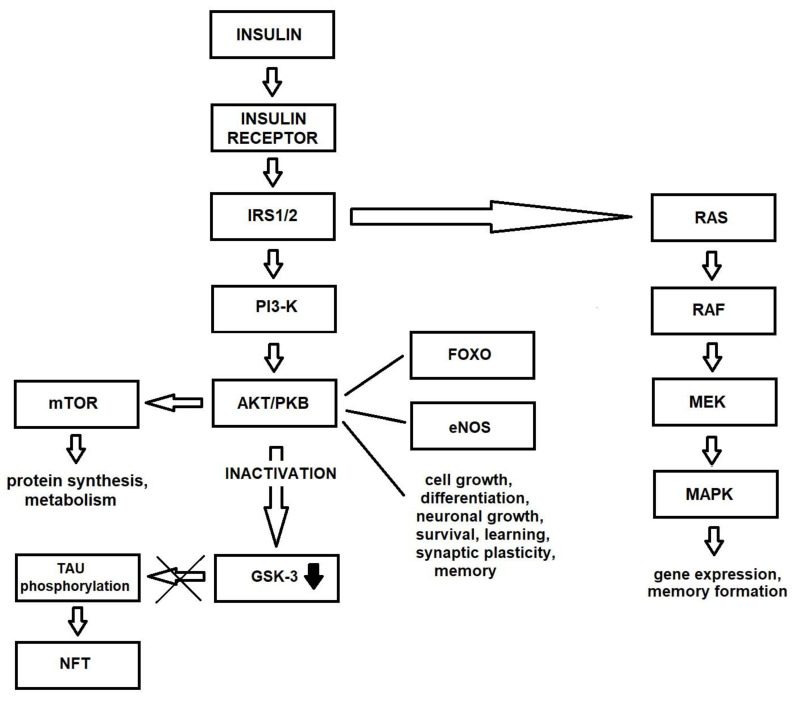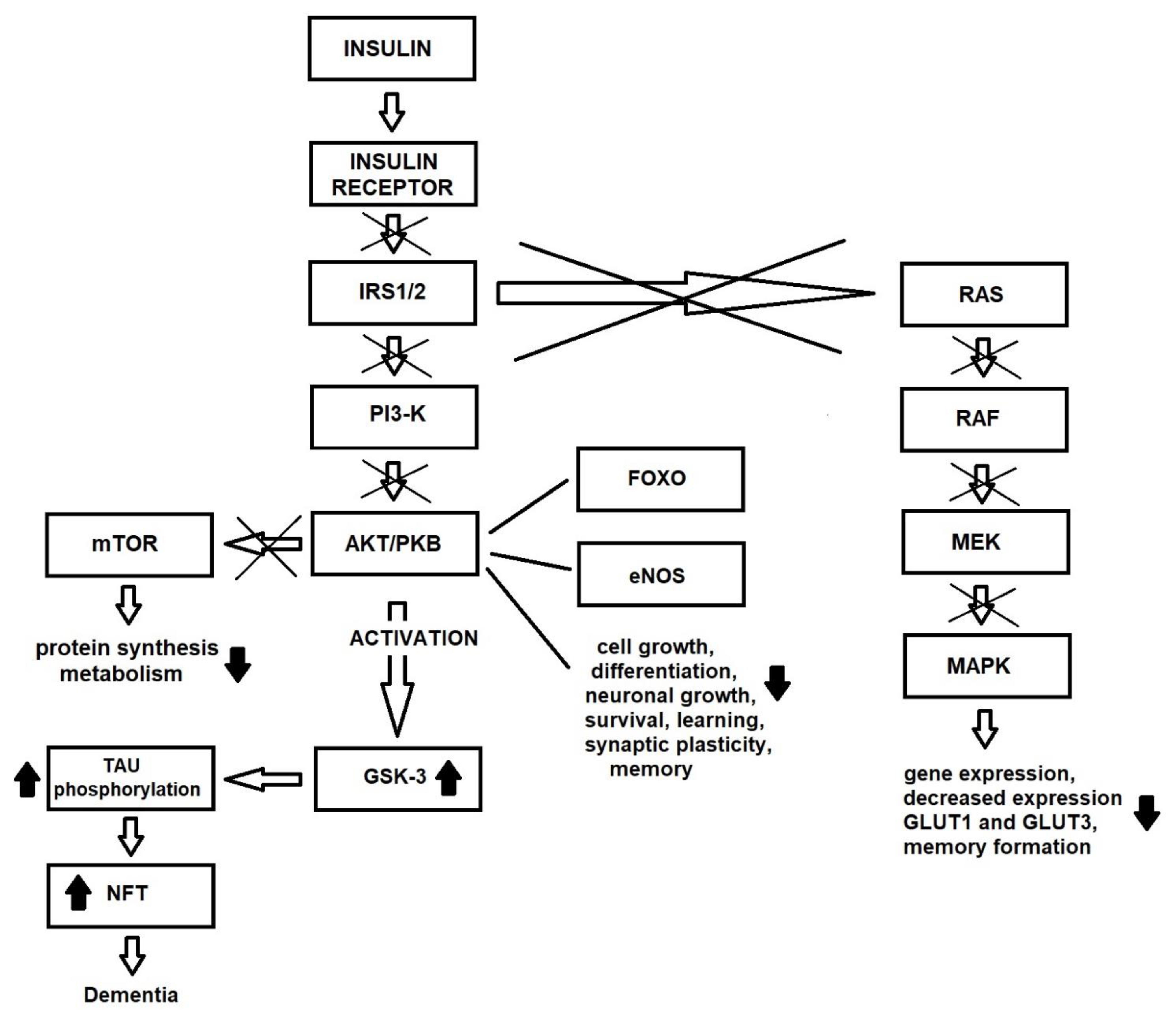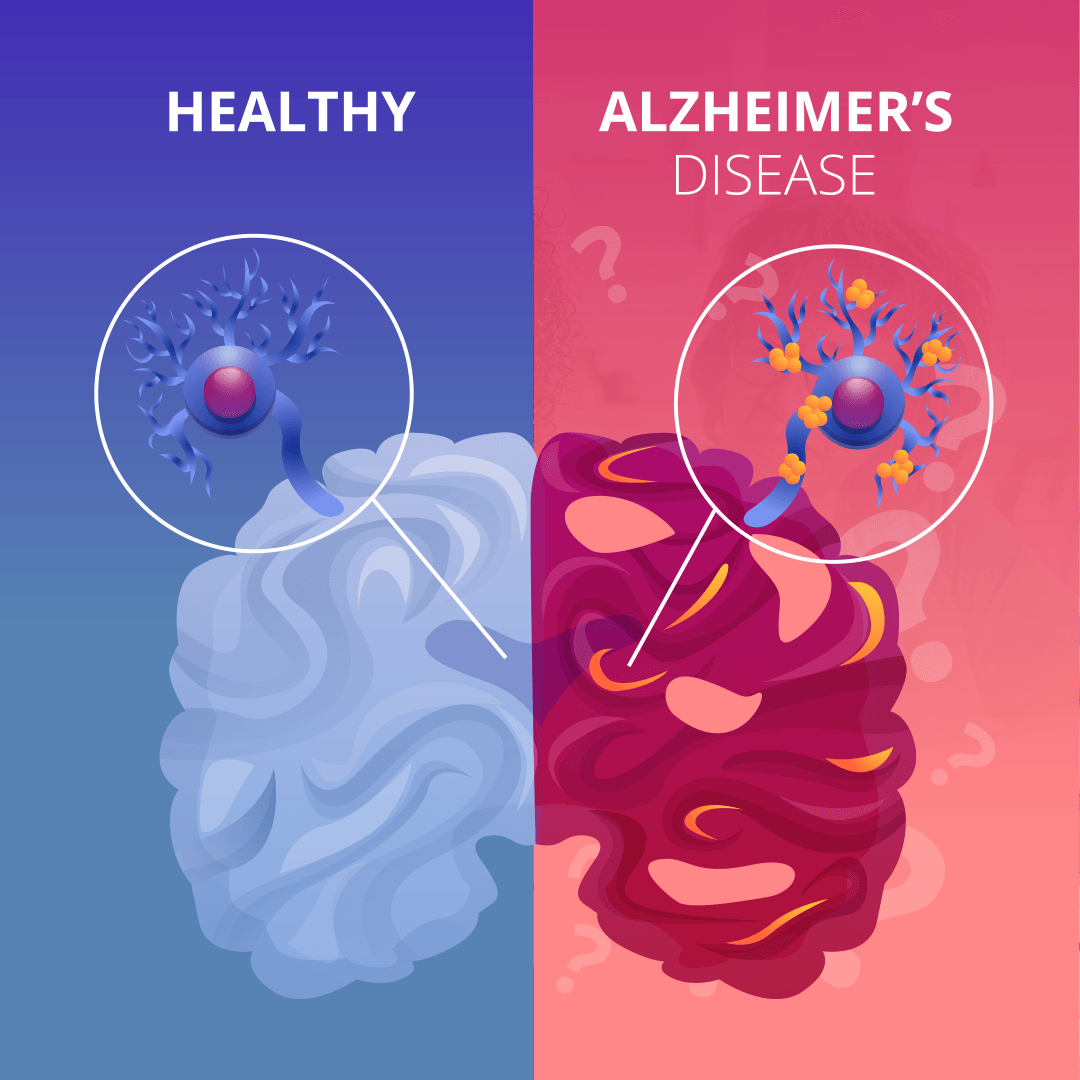Before working with older people, I personally never understood how much impact a disease like Alzheimer’s disease (AD) had on a patient. Being a type of dementia, AD comes with stages of forgetfulness, and can get as bad as someone forgetting to breathe. At such an escalated stage, the patient usually ends up dying. Stories like Mike and Julia’s gave me an opportunity to understand that AD does not just affect the patient only, but also family members. Julia, had to learn about AD through her 58 years old husband’s diagnosis. Married for more than 47 years, they say support and hope keep them going. Read more about Mike and Julia’s journey with Alzheimer’s [1]
AD is usually characterized by formation of amyloid beta plaques that look like this . Although there is currently a large amount of research on AD, there is still no current developed cure for this disease. This delay might be due to research gaps in understanding AD to identify targets for drug treatments. Our selected research article studies Alzheimer’s from a perspective of insulin resistance, and how this reduced insulin sensitivity may affect chemical signaling. In most cases, this disease may stem from a dysfunction in signaling, which then affects the cascade of activities that follow the signaling pathway.
To break it down, the PI3K/Akt pathway in insulin signaling can be seen as responsible for giving the brain energy, however research suggests that insulin binding the brain is reduced can be reduced which then causes improper insulin signaling in AD. With reduced insulin signaling which leads to reduced activation of the PI3K/Akt pathway, this dysfunction then eventually leads to enhanced activation of GSK-3beta, which ultimately leads to amyloid beta deposition. [2] Compare the figures below which show what normal insulin signaling looks like in a brain compared to shows what improper insulin signaling looks like in the brain.

Figure 1. Diagram showing normal insulin signaling in a healthy brain [3]

Figure 2. Diagram showing changes in insulin signaling due to insulin resistance in the brain. [3]
It is common to associate insulin deficiency with diabetes. Still, insulin is very related to brain function. About 80 years ago, Sir Harold Himsworth suggested the relationship between insulin resistance and CNS function. He explained that brain aging is associated with reduced insulin effectiveness and this is caused by a decrease in insulin reactivity in brain cells or a decrease in insulin reactivity in bran cells or a decrease in insulin passing through the blood brain barrier (BBB). [4]
Before class this week, I was only conversant about the dementia symptoms of Alzheimer’s and knew nothing about the connection between insulin resistance and AD. Most of my knowledge on AD is from working directly with diagnosed patients. It was usually a process of meeting them, bonding with them, and then experiencing them forget all the memories we shared. I truly hope that I can make my own contributions in this area of research, whether it is by educating myself, conducting research, or enlightening others.
How about you? How much do you know about AD? Let’s hear your thoughts in the coment section!
References:
[1] Nehring , A. (n.d.). Alzheimer’s: A real love story… Alzheimer’s Disease and Dementia. https://www.alz.org/blog/alz/june_2016/alzheimer_s_a_real_love_story%E2%80%A6
[2] A., Banks, W. A., Benedict, C., Codina, M., Cole, G. M., Dance, M., Ding, V. W., Dominici, F. P., Ferreira, S. T., Gan, X., Gual, P., Gupta, A., Hanke, S., Hernández, F., Hoyer, S., Hu, S., … Clemens, M. (2020, February 21). Insulin signaling pathway and related molecules: Role in neurodegeneration and alzheimer’s disease. Neurochemistry International. https://www.sciencedirect.com/science/article/abs/pii/S019701862030098X
[3] Sędzikowska, A., & Szablewski, L. (2021, September 15). Insulin and insulin resistance in alzheimer’s disease. MDPI. https://www.mdpi.com/1422-0067/22/18/9987
[4] Yoon, J. H., Hwang, J., Son, S. U., Choi, J., You, S.-W., Park, H., Cha, S.-Y., & Maeng, S. (2023, February 9). How can insulin resistance cause alzheimer’s disease? International journal of molecular sciences. https://www.ncbi.nlm.nih.gov/pmc/articles/PMC9966425/
